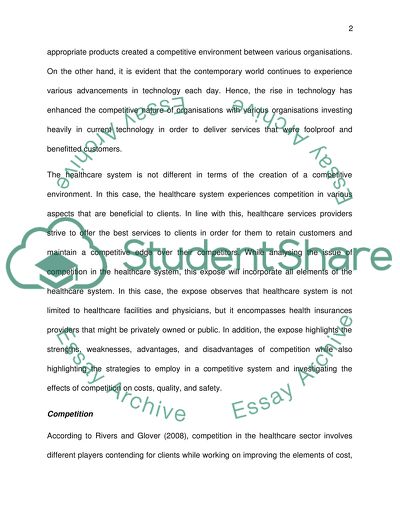Cite this document
(“Competition in Healthcare Essay Example | Topics and Well Written Essays - 2000 words”, n.d.)
Competition in Healthcare Essay Example | Topics and Well Written Essays - 2000 words. Retrieved from https://studentshare.org/health-sciences-medicine/1465866-competition-in-healthcare
Competition in Healthcare Essay Example | Topics and Well Written Essays - 2000 words. Retrieved from https://studentshare.org/health-sciences-medicine/1465866-competition-in-healthcare
(Competition in Healthcare Essay Example | Topics and Well Written Essays - 2000 Words)
Competition in Healthcare Essay Example | Topics and Well Written Essays - 2000 Words. https://studentshare.org/health-sciences-medicine/1465866-competition-in-healthcare.
Competition in Healthcare Essay Example | Topics and Well Written Essays - 2000 Words. https://studentshare.org/health-sciences-medicine/1465866-competition-in-healthcare.
“Competition in Healthcare Essay Example | Topics and Well Written Essays - 2000 Words”, n.d. https://studentshare.org/health-sciences-medicine/1465866-competition-in-healthcare.


